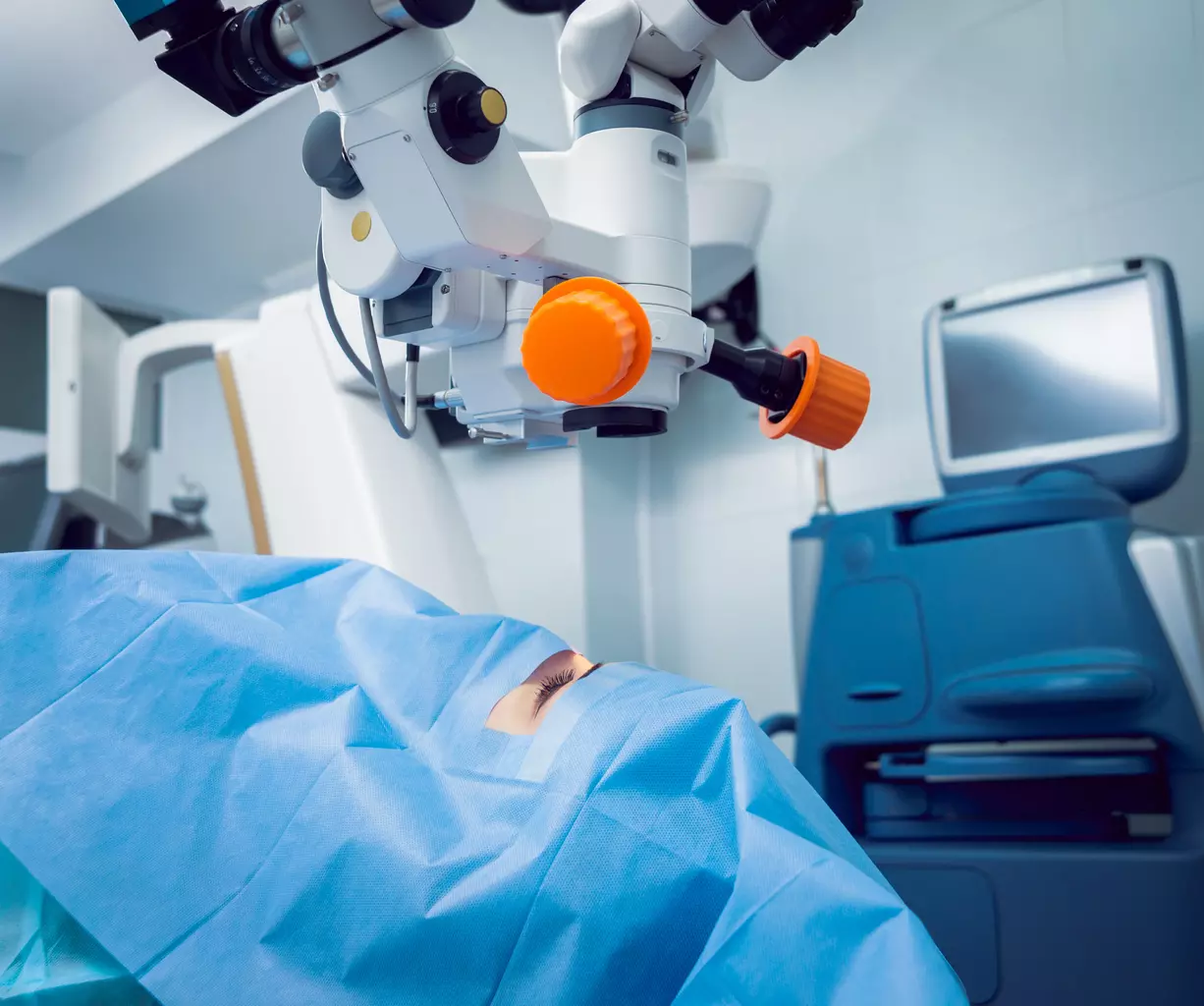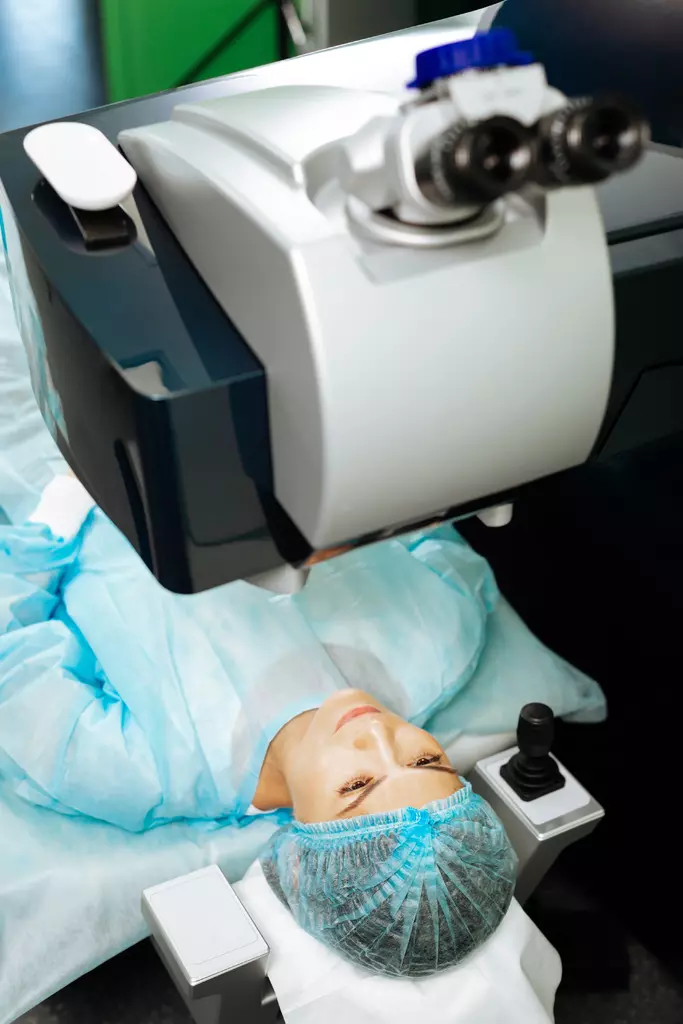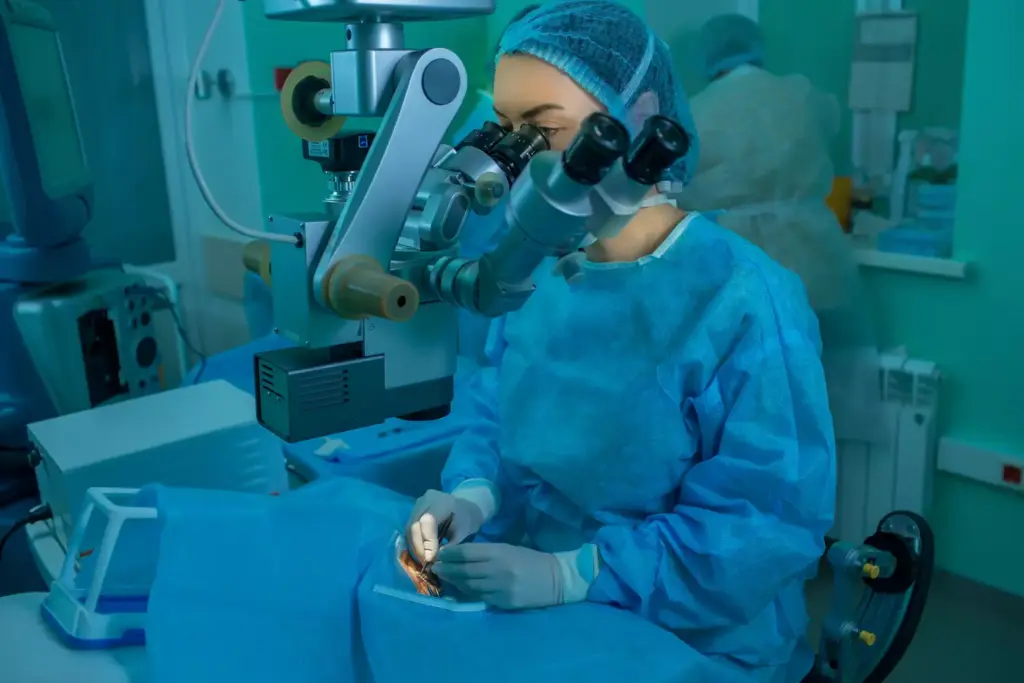
We are seeing a big change in surgery thanks to AI-powered surgeons. The mix of robotics and artificial intelligence is making surgery better. It’s leading to more precise, efficient, and safe care for patients.
Places like Liv Hospital are using these new tools to help patients. They’ve seen a 25% cut in operation time and 30% fewer problems during surgery. This is a big step forward for surgery.
Key Takeaways
- AI-powered surgeons are changing surgery for the better all over the world.
- Recent discoveries have made surgery more precise, safe, and efficient.
- Places like Liv Hospital are leading the way in using these new tools.
- They’ve seen a big drop in how long surgeries take and in problems during surgery.
- These changes are making surgery better than ever before.
The Revolutionary Impact of AI on Modern Surgical Practices

AI is changing surgery, making it more precise and safer. It’s bringing a big change to how we do surgery today.
The Transition from Traditional to AI-Enhanced Techniques
The move to AI in surgery is a big step forward. AI-assisted robotic surgeries cut down on time and mistakes. This change is all about better care and a smoother surgery.
Now, systems can do surgery on their own, adjusting for each patient. This leads to 40% better accuracy in surgeries. It’s a big win for precision.
Statistical Overview of AI’s Impact on Surgical Outcomes
The numbers show AI’s big impact on surgery. Here’s a quick look:
| Surgical Outcome | Improvement with AI |
|---|---|
| Operative Time | 25% reduction |
| Intraoperative Complications | 30% decrease |
| Surgical Precision | 40% improvement |
These numbers show AI’s big win for surgery. As we keep using AI, we’ll see even better results for patients.
The Science Behind AI-Powered Surgeon Technology

AI-powered surgeon technology is changing surgery with smart AI systems. These systems improve precision and give surgeons real-time data. This is a big step in medicine, making surgeries better and care for patients better too.
Core Components of Surgical AI Systems
The main parts of surgical AI systems are advanced algorithms, machine learning models, and real-time data analytics. Together, they give surgeons important info during surgeries.
- Advanced Algorithms: Help analyze complex data, making surgeries more precise.
- Machine Learning Models: Predict possible problems and adjust to each patient’s body.
- Real-Time Data Analytics: Give surgeons quick feedback, helping them make better decisions.
AI is also helping surgeons with tools like advanced intraoperative metrics. These tools include force and tactile measurements, better detection of surgical margins, and even automating some steps. Hospitals like Liv Hospital are using these AI technologies to offer top-notch care and follow the latest medical standards.
Integration with Robotic Surgical Platforms
AI working with robotic surgical platforms is key in today’s surgery tech. This combo makes surgeons better at doing precise and complex surgeries.
Robotic-assisted surgery is getting more common because it boosts surgery results. AI and robotic tech together mean:
- More precise surgeries with real-time data and feedback.
- Being able to adapt better to each patient’s body.
- More efficient surgery workflows.
A leading expert says, “The future of surgery is humans working with AI systems. This will make surgeries more precise and successful.” This teamwork is seen in the progress of AI-assisted surgery.
By combining AI with robotic surgery, hospitals can offer top-level surgical care. This move is a big step in using advanced surgical technology.
Breakthrough #1: Autonomous Surgical Task Execution
Autonomous surgical task execution is a big step forward in surgery, thanks to AI and robotics. It could change how surgeries are done by making them more precise, shorter, and better for patients.
Self-Directed Surgical Procedures and Capabilities
AI surgeons can now do tasks like camera work and suturing on their own. They do it with great precision and accuracy. This is thanks to advanced algorithms and machine learning that let them make decisions fast.
The abilities of these systems include:
- Enhanced precision in surgical maneuvers
- Improved stability during complex procedures
- Real-time adaptation to changing surgical conditions
These changes are making surgery better by giving surgeons new tools. These tools help them do their jobs better and care for patients more effectively.
Comparative Analysis with Human-Only Surgeries
Research shows AI-assisted robotic surgery can be more precise and consistent than surgeries done by humans alone. For example, a study found robotic systems were more accurate and consistent in suturing tasks than humans.
| Criteria | Human-Only Surgeries | AI-Assisted Robotic Surgeries |
|---|---|---|
| Precision | Variable | High |
| Consistency | Dependent on surgeon skill | Consistent |
| Operation Time | Variable | Often reduced |
While human surgeons are skilled and make good decisions, AI-powered robotic systems add benefits. They can make surgeries better overall.
Breakthrough #2: Real-Time Adaptation to Unique Patient Anatomies
AI-powered surgeons can now adjust to each patient’s unique body shape. This is a big step forward in AI-assisted surgery. It makes surgeries more precise and successful.
Dynamic Response to Individual Anatomical Variations
Artificial intelligence in surgery lets systems change plans based on each patient’s body. They use advanced algorithms to look at data from before and during surgery.
For example, during surgery, the AI can change its plan based on the patient’s body. This includes where important structures are or if there’s scar tissue. This ability to adjust is key in machine learning in healthcare, where systems get better with more data.
“The ability of AI systems to adapt to individual patient anatomies in real-time is revolutionizing the field of surgery, making procedures safer and more effective.”
Clinical Advantages of Adaptive Surgical Approaches
Adaptive surgery has many benefits. It makes surgeries fit each patient’s needs better. This leads to better results and fewer complications.
| Clinical Advantage | Description | Benefit |
|---|---|---|
| Improved Precision | Real-time adaptation to patient anatomy | Better surgical outcomes |
| Reduced Complications | Dynamic response to anatomical variations | Enhanced patient safety |
| Personalized Surgery | Tailored approach to individual patient needs | Increased effectiveness of surgical interventions |
As we keep improving in AI-assisted surgery, we’ll see even better results for patients. Using artificial intelligence in surgery and machine learning in healthcare will set a new standard. It will be more personal and effective.
Breakthrough #3: 40% Greater Precision in Tumor Resections
Tumor removals have become much more accurate thanks to AI. We now have a 40% better precision in these surgeries. This greatly improves how well patients do after surgery.
Advanced Margin Detection Technology
The main reason for this big leap is the advanced margin detection tech in AI surgical systems. This tech helps surgeons remove tumors more accurately. It also lowers the chance of leaving cancer cells behind.
Key features of this technology include:
- Real-time analysis of tumor margins
- Enhanced visualization of the surgical site
- Predictive analytics to guide surgical decisions
Oncological Outcome Improvements
This tech has a huge impact on cancer treatment results. Clearer margins during surgery mean less chance of cancer coming back. This also means fewer follow-up surgeries, better survival rates, and a better life for patients after surgery.
Some of the notable improvements include:
- Reduced rates of cancer recurrence
- Lower rates of complications during and after surgery
- Improved patient recovery times
As we keep improving in AI-driven surgical tools and robotic-assisted surgery, we can do even better. Our goal is to use advanced surgical technology to stay ahead in cancer treatment. This way, we can give our patients the best care possible.
Breakthrough #4: Revolutionary Implant Placement Accuracy
AI-powered surgeons are changing implant placement with amazing accuracy. This change is making patient care better by cutting down on problems and making implants last longer.
Precision Engineering in Prosthetic and Device Implantation
AI in surgical robotics has made placing prosthetics and implants very precise. Robotic surgeons can do complex tasks with better accuracy. This is thanks to smart algorithms and analyzing data in real-time.
This exact placement is key in orthopedic and dental surgeries. It affects how well a patient recovers and how well the implant works.
Long-Term Benefits of Precise Implant Positioning
There are many benefits to placing implants accurately. Patients have shorter recovery times and better results because of fewer complications. Also, implants last longer, which means fewer surgeries are needed later on.
Research shows AI-assisted robotic surgery is up to 40% more accurate than old methods. This big improvement shows AI can really change implant surgery.
As we keep using surgical robotics, the future of implant placement looks bright. New advancements will keep making patient care and surgery results even better.
Breakthrough #5: 25% Reduction in Operation Time
Surgeons now use machine learning to finish surgeries faster, cutting down operation time by 25%. This big leap is thanks to artificial intelligence in surgery. It makes surgical workflows more efficient.
Efficiency Improvements in Surgical Workflows
AI has made surgery better by analyzing data in real-time. AI-assisted surgery gives surgeons key insights during operations. This leads to more precise and quicker surgeries.
Research shows AI-powered surgeons can predict problems and suggest better ways to do things. This helps avoid delays and makes the surgical team work better together.
Impact on Hospital Resource Utilization
AI-assisted surgery means hospitals can treat more patients. With surgeries done faster, hospitals can use their operating rooms more efficiently. This lets them see more patients.
| Resource | Pre-AI Utilization | Post-AI Utilization |
|---|---|---|
| Operating Room Time | 100% | 75% |
| Surgical Staff | 100% | 80% |
| Equipment Usage | 100% | 90% |
With AI, hospitals can manage resources better and care for patients more effectively. As AI keeps getting better in healthcare, we’ll see even more improvements in surgery and hospital operations.
Breakthrough #6: AI Powered Surgeon Systems Reduce Complications by 30%
AI has made a big leap in surgery, cutting complications by 30%. This is thanks to AI’s ability to spot and fix risks early. Now, surgeries are safer and better for patients, thanks to AI.
Risk Identification and Mitigation Mechanisms
AI systems use smart algorithms to find risks during surgery. They look at patient data, images, and live surgery info. This helps them prevent problems before they start.
The main ways AI helps include:
- Predictive Analytics: AI looks at lots of data to guess when problems might happen. This lets doctors act fast.
- Real-time Monitoring: AI watches surgery closely. It spots oddities and tells the surgeon right away.
- Automated Decision Support: AI gives doctors advice based on the latest research. This helps them make better choices.
Comparative Safety Profiles
Studies show AI systems are safer than old ways of surgery. They cut down on problems during surgery by 30%. This makes AI-assisted surgeries much safer.
Some important results are:
| Surgical Outcome | Traditional Methods | AI-Powered Systems |
|---|---|---|
| Intraoperative Complications | 10% | 7% |
| Postoperative Complications | 15% | 10% |
| Recovery Time | 6 weeks | 4 weeks |
Using AI in surgery makes things better for patients. It makes surgeries safer and helps patients heal faster. The future of surgery looks bright with AI leading the way.
Breakthrough #7: 15% Faster Patient Recovery and Enhanced Outcomes
AI technology has changed surgery, making patients recover faster. AI-powered surgeons have made big steps in surgery, leading to better results. Research shows AI-assisted robotic surgery helps patients get better quicker and have better outcomes after surgery.
Factors Contributing to Accelerated Recovery
Several things help patients recover faster with AI-assisted surgery. Precision and minimal invasiveness are big pluses of AI surgery. AI helps reduce damage and improve precision, making surgery less harsh.
AI also looks at data in real-time during surgery. This lets surgeons make dynamic adjustments to keep patients safe and help them recover better. This is very helpful in complex surgeries where the body’s layout can affect results.
Post-Operative Care Improvements
Post-surgery care has gotten much better with AI. Personalized care plans are made using data and AI. This makes care fit each patient’s needs, helping with pain and lowering complication risks.
A study on stem cell therapy success shows how advanced tech can improve patient results. AI surgeons are also changing post-surgery care by giving insights for better patient management.
In conclusion, AI-powered surgeons have made a big difference in patient recovery. They have achieved a 15% faster recovery rate and better outcomes. As we keep using artificial intelligence in surgery, we’ll see even more improvements in patient care.
Liv Hospital: Pioneering AI-Powered Surgical Excellence
Liv Hospital is all about top-notch care. We use the latest AI to make surgeries better. Our goal is to give patients the best care with AI-assisted surgery.
Integration of Cutting-Edge AI Technologies
Liv Hospital leads in using AI in surgery. Our team works hard to use robotic-assisted surgery systems. These systems help with precision and control.
AI helps us understand complex data better. This means we can diagnose and plan treatments more accurately. With advanced surgical technology, our surgeons can do surgeries with more precision and less invasion.
‘5-Star Tourism Healthcare’ with Advanced Surgical Methods
Liv Hospital aims for ‘5-star tourism healthcare’. We offer top care with the latest technology and personal touch.
| Surgical Method | Benefits | Outcome |
|---|---|---|
| AI-Assisted Surgery | Enhanced precision, reduced recovery time | Improved patient satisfaction |
| Robotic-Assisted Surgery | Minimally invasive, reduced complications | Faster return to normal activities |
| Advanced Surgical Technology | Improved diagnostic accuracy, enhanced treatment planning | Better overall outcomes |
At Liv Hospital, we’re always looking to improve surgery with AI. Our goal is to give patients the best care possible. We’re committed to ‘5-star tourism healthcare’ for all our patients.
Ethical and Practical Considerations in AI-Assisted Surgery
AI in surgery brings a new challenge: balancing tech with human skills. As AI-assisted surgery grows, we must think about its ethical and practical sides. It’s key to understand how machine learning and surgical robots fit into our medical world.
Balancing Automation with Human Expertise
Artificial intelligence in surgery could make operations more precise and successful. But, we need to find the right mix of AI and human surgeons. AI can handle lots of data well, but human experience is vital for tough decisions.
We should make AI systems work with, not against, surgeons. This means creating machine learning in healthcare tools that boost surgeons’ skills without taking over their jobs.
Patient Perspectives and Informed Consent
How patients see AI-assisted surgery matters a lot. They have the right to know if AI is used in their care. This includes understanding AI’s role, its good points, and any risks.
To meet these needs, we need clear rules for telling patients about surgical robotics and AI. This means giving them all the facts and making sure they can make choices based on what they know.
By carefully looking at these ethical and practical points, we can make AI in surgery work well. This will help improve patient care and results.
The Future Landscape of AI-Powered Surgical Innovation
AI-driven surgical tools are changing surgery worldwide. We’re seeing more precise, efficient, and personalized care. This is thanks to advanced technologies.
Emerging Technologies on the Horizon
The future of AI in surgery looks bright. New technologies will make surgery even better. Here are some key advancements:
- Neuro-Visual Adaptive Control: This tech adapts to surgery changes in real-time. It improves precision and control.
- Digital Twin-Assisted Surgery: Virtual patient models help surgeons plan and practice. This makes complex surgeries more accurate.
- Advanced Robotic Systems: Next-gen robots will be more flexible and offer better views. They’ll help surgeons work more accurately.
Expanding Applications Across Surgical Specialties
AI is making a big impact in many surgical areas. Here’s where we’re seeing it:
| Surgical Specialty | AI-Powered Application | Potential Benefits |
|---|---|---|
| Oncology | AI-assisted tumor resection | Improved precision, reduced recurrence rates |
| Orthopedic Surgery | Robotic-assisted joint replacement | Enhanced accuracy, faster recovery times |
| Neurosurgery | AI-guided brain surgery | Increased precision, reduced risk of complications |
As we look ahead, these new technologies and uses will keep improving care. AI is making surgery safer, more efficient, and effective. We’re excited for the future of surgery.
Conclusion: Embracing the AI-Powered Surgical Revolution
We are seeing a big change in surgery thanks to AI. AI-powered surgeons and robotic surgeons are making patient care better. They bring more precision and safety to the operating room.
Studies show AI can cut down errors in finding cancer from 3.4% to 0.5%. It can also check hundreds of chest x-rays in just 90 seconds, as well as a doctor.
The future of surgery looks bright with AI. It’s set to make surgeries better and safer for everyone. A recent article by the American College of Surgeons talks about how AI will change surgery. You can read it on the American College of Surgeons website.
We need to keep working on these AI technologies. This will help surgeons do their jobs better and care for patients more effectively. By doing this, we can make sure AI surgery helps people all over the world.
What is AI-powered surgery?
AI-powered surgery combines artificial intelligence with surgical robots. It makes surgeries more precise, safe, and efficient.
How does AI improve surgical outcomes?
AI makes surgeries better by being more precise and reducing complications. It also helps patients recover faster by analyzing data in real-time.
What are the benefits of autonomous surgical task execution?
Autonomous surgery lets surgeons do complex tasks with more accuracy. This reduces errors and improves patient care.
How does AI-powered surgery adapt to unique patient anatomies?
AI adapts to each patient’s body through data analysis and machine learning. This helps surgeons make precise adjustments during surgery.
What is the impact of AI on tumor resections?
AI has made tumor removals 40% more precise. This leads to better cancer treatment and care for patients.
How does AI improve implant placement accuracy?
AI enhances implant accuracy through precise engineering and data analysis. This results in 40% better results for patients.
What are the benefits of reduced operation time in AI-powered surgery?
Shorter surgeries in AI-powered surgery save time and money. They also reduce the risk of complications and improve patient care.
How does AI reduce complications in surgery?
AI identifies and prevents surgery risks through data analysis. This reduces complications by 30%.
What is the role of Liv Hospital in AI-powered surgical excellence?
Liv Hospital leads in AI-powered surgery by using the latest AI technologies. They offer top-notch care and outcomes.
What are the ethical considerations in AI-assisted surgery?
Ethical issues in AI surgery include balancing human skill with AI. It’s also important to consider patient views and consent, and to address AI biases.
What is the future of AI-powered surgical innovation?
The future of AI in surgery looks bright. New technologies and applications will continue to improve patient care and outcomes.
How does AI-powered surgery impact patient recovery?
AI surgery leads to 15% faster recovery and better outcomes. This is due to optimized workflows, fewer complications, and better post-op care.
What is the significance of robotic-assisted surgery in AI-powered surgery?
Robotic-assisted surgery is key in AI surgery. It allows for more precise and accurate procedures, improving patient results.
How does AI enhance surgical robotics?
AI boosts surgical robots by analyzing data in real-time and using machine learning. This makes surgeries more precise, safe, and efficient.
References
- Brylkov, M. (2025, July 17). AI surgical planning in 2025: Revolutionizing modern healthcare. iData Research. https://idataresearch.com/ai-surgical-planning/
- Johns Hopkins University. (2025, July 9). Robot performs first realistic surgery without human help. Hub at Johns Hopkins. https://hub.jhu.edu/2025/07/09/robot-performs-first-realistic-surgery-without-human-help/
- World Economic Forum. (2025, August 20). AI is transforming global health. World Economic Forum. https://www.weforum.org/stories/2025/08/ai-transforming-global-health/
- NYU Tandon School of Engineering. (2025, September 16). AI-powered wearable and surgical robots for human augmentation. NYU Tandon School of Engineering. https://engineering.nyu.edu/events/2025/09/16/ai-powered-wearable-and-surgical-robots-human-augmentation
- World Economic Forum. (2025, August 20). AI is transforming global health. World Economic Forum. https://www.weforum.org/stories/2025/08/ai-transforming-global-health/









